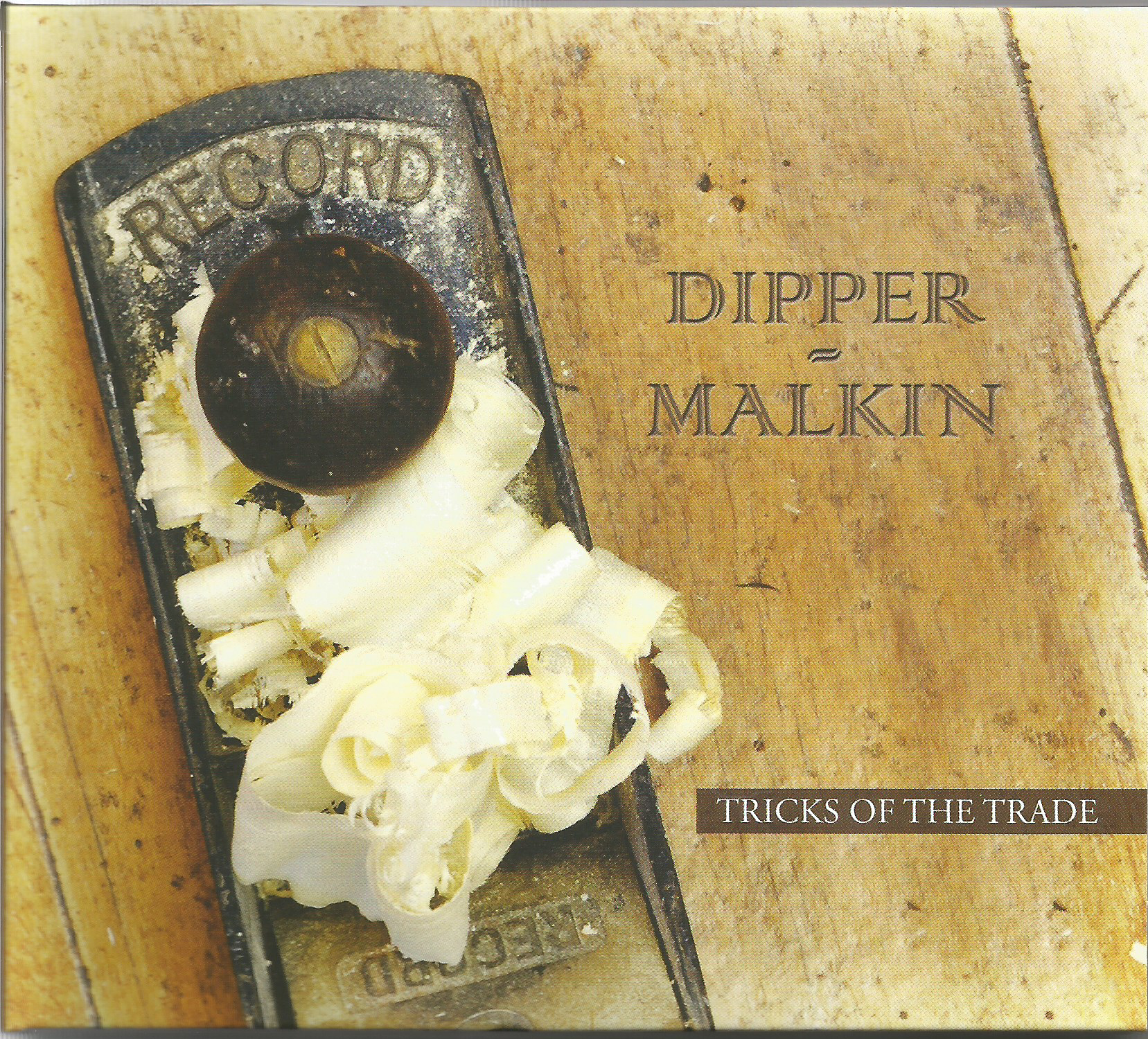
 (5 / 5)
(5 / 5)
The duo Dipper Malkin is John Dipper and Dave Malkin. John well known for his contribution to The English Acoustic Collective and the string quartet Methera, along with being a fine craftsman making concertinas in the family’s Wiltshire workshop.
While fellow Englishman Dave hails from the fens of Lincolnshire, and is one of the founding members of the trio Tandem. Add to their collective experience and reputation, a glowing respect from their peers, neither could afford to release an “OK” debut album after they joined forces. The opener “Wine & Women” kicks off proceedings in fine style. For a duo, they make a rich, full sound and clearly have chemistry.
On “King Storm,” after a staccato intro, Dave Malkin’s deep vocals draw you in. The tone of John Dipper’s seven-bowed and seven-sympathetic stringed, specially tuned viola d’amore from the baroque period, blends beautifully with Tom Dennis’ lush flugelhorn. Dave and John have assembled some strong support on this album that includes Glaswegian drummer Corrie Dick (BBC Radio Scotland’s Young Jazz Musician of the Year) who provides percussion on two cuts.
The subtle twists and turns throughout this album are testament to the eclectic projects the duo have been involved with, and they have not wasted that experience. The use of the Viola d’amore matched with Malkin’s guitar skills and distinctive vocals across this album, makes for a superb listening experience.The tunes are a celebration of the inheritance of traditional tunes, mixed with newer compositions. Dave’s rich, moody vocals on “All Things Are Quite Silent,” delivers the story of the husband press-ganged into service. In contrast to the normally raucous sea shanty that would usually accompany this topic, here the slower treatment is spot on.
“Mrs Chambers / Emmaline’s Valse” allows the full range of the Viola to shine. “Mrs Chambers,” written by Peter Blue is a modern day lament written in memory of Mrs Chambers, who resided on a neighbouring farm. “Emmaline’s Valse” takes us from a death to new life, a composition by John for his then new-born daughter. The moody “Fidler’s Morris,” wraps around you like an old friend. The blend of stringed instruments is wonderful on this track.
Mainstream artists could take a lead from the folk scene, in that’ less is more’, the high production values allow the instruments to breath and to be heard, as demonstrated on “Answerphone” / “Honest Intentions” / “Hommage A Gilles Laprise”. A medley that truly showcases the superb talent on this album. Dave Malkin brought in his long-term collaborator, Ben Corrigan for production. It is clear that this relationship works well, with Ben providing a broad canvas upon which the duo have been able to be totally creative, with total freedom, and exploiting production values not necessarily associated with folk music.
Drawn primarily from the rich history of trad’ folk tunes, the predominately instrumental track listing is superbly punctuated with strong vocal tracks to keep you tuned in. Wrapping the ten tracks up on this album is my favourite, “The Parting Glass, the song of choice back in the day before “Auld Lang Syne,” become the go-to tune. The lyrics tell of a good evening had, many drinks drunk and good money spent.
The quality of current output in the world of folk has set the bar high, and Dipper Malkin have leapt it comfortably. The duo play a special CD launch show at The Slaughtered Lamb in London, the day after the album is released. Guests are Corrie Dick and Tom Dennis.
By Ian Shipley
 (1 / 5) ‘Dull Zone’
(1 / 5) ‘Dull Zone’ (2 / 5) ‘OK Zone’
(2 / 5) ‘OK Zone’ (3 / 5) ‘Decent Zone’
(3 / 5) ‘Decent Zone’ (4 / 5) ‘Super Zone’
(4 / 5) ‘Super Zone’ (5 / 5) ‘Awesome Zone’
(5 / 5) ‘Awesome Zone’




